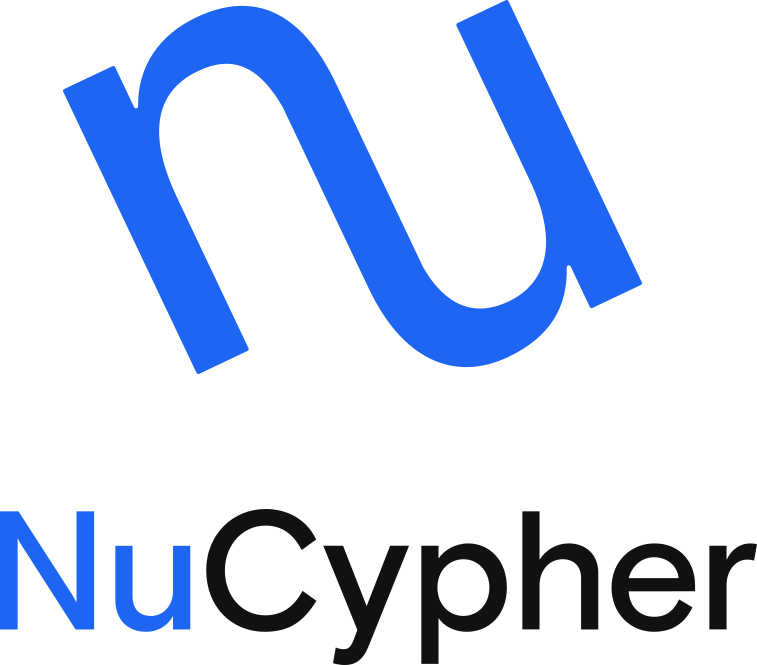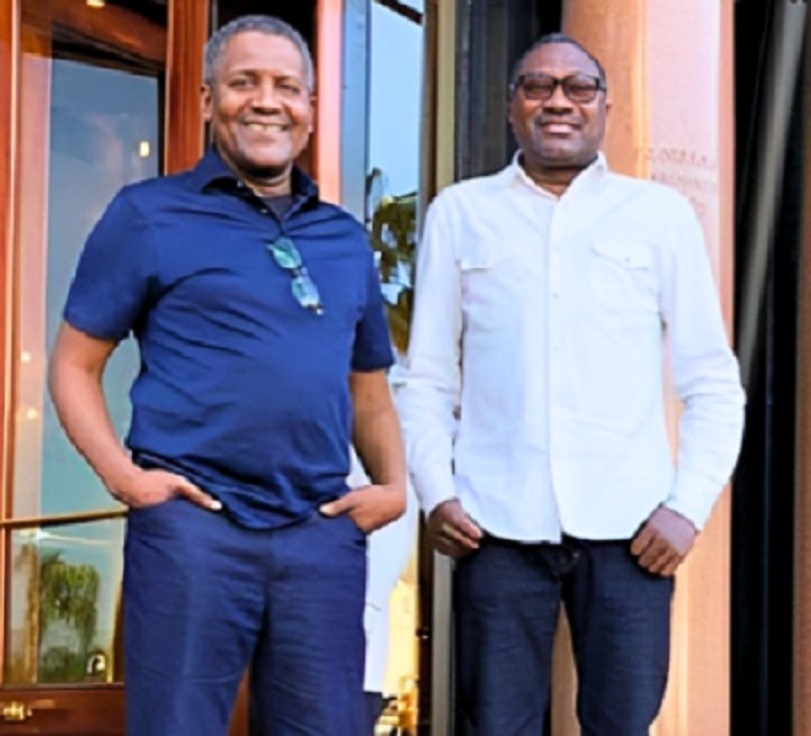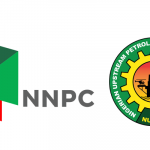Economy
NuCypher’s Integration with Blockchain: Securing Smart Contract Data

In today’s digital landscape, blockchain technology has emerged as a revolutionary force, transforming various industries and providing secure and transparent solutions. With the rapid growth of decentralized applications (dApps) and smart contracts, the need for robust data security and privacy measures has become paramount. This is where NuCypher, in collaboration with Bitcoin Era which is an Online trading platform, comes into play, offering a cutting-edge solution for securing smart contract data on the blockchain.
Understanding NuCypher’s Role
NuCypher is a decentralized threshold cryptography network that prioritizes data privacy and secure sharing on public blockchains. It achieves this through the use of proxy re-encryption, a cryptographic technique that allows encrypted data to be accessed and shared securely without compromising its integrity. This makes NuCypher an ideal solution for protecting sensitive information within smart contracts.
By integrating with NuCypher, developers and users gain access to a powerful framework that safeguards sensitive data within smart contracts. Proxy re-encryption enables authorized individuals or entities to delegate access to encrypted data, ensuring that only those with the proper permissions can decrypt and view it. This delegation mechanism enhances security, as the original data remains encrypted and protected against unauthorized access. NuCypher’s decentralized nature, with independent nodes executing proxy re-encryption operations, further strengthens its security and privacy measures.
Enhancing Smart Contract Security
By integrating NuCypher into blockchain networks, developers and businesses can enhance the security and privacy of their smart contract data. Let’s delve deeper into how NuCypher achieves this:
Data Encryption
NuCypher utilizes sophisticated encryption algorithms to guarantee the security and confidentiality of data transferred within smart contracts. By implementing this approach, NuCypher effectively safeguards against unauthorized access and potential data breaches, thereby providing a robust layer of protection for sensitive information. This ensures that only authorized parties can access and utilize the data, maintaining the integrity and privacy of the smart contract ecosystem.
Access Control
NuCypher provides developers with the ability to incorporate fine-grained access controls, enabling them to specify which individuals or entities can access particular encrypted data. By utilizing this feature, the privacy of smart contract data is significantly improved, as only authorized parties possess the capability to decrypt and utilize the information effectively.
Dynamic Access Delegation
NuCypher possesses a remarkable capability to dynamically delegate access to encrypted data, distinguishing it as one of its standout features. This functionality empowers users to grant or revoke access permissions in real time, offering them unparalleled flexibility and control throughout the entire data-sharing process.
Secure Key Management
NuCypher utilizes a decentralized key management system, ensuring that encryption keys are stored securely and protected from single points of failure. This enhances the resilience and reliability of the overall system.
Byzantine Fault Tolerance
By employing Byzantine fault tolerance, NuCypher is capable of withstanding malicious attacks or network disruptions, maintaining the integrity and security of smart contract data even in adverse conditions.
Use Cases of NuCypher’s Integration
The integration of NuCypher with blockchain technology opens up a world of possibilities across various sectors. Here are some notable use cases:
Healthcare
In the healthcare industry, protecting patient data is of utmost importance. By leveraging NuCypher’s secure data-sharing capabilities, medical records and sensitive information can be stored on the blockchain while maintaining privacy and compliance.
Finance
Smart contracts have revolutionized the finance sector by enabling secure and automated transactions. With NuCypher’s integration, financial institutions can ensure that sensitive financial data, such as transaction details and account balances, remains confidential and tamper-proof.
Supply Chain Management
NuCypher’s data encryption and access control features can play a vital role in supply chain management. By securing critical information such as inventory data, shipment details, and vendor contracts, organizations can mitigate the risk of unauthorized access and data manipulation.
Intellectual Property
Protecting intellectual property is crucial for creators and innovators. By utilizing NuCypher’s secure data sharing capabilities, artists, writers, and inventors can protect their works while securely licensing and sharing them on blockchain platforms.
Conclusion
In conclusion, NuCypher’s integration with blockchain technology brings a new level of security and privacy to smart contract data. By leveraging advanced encryption techniques, access controls, and decentralized key management, NuCypher offers a robust solution for safeguarding sensitive information in various industries.
Economy
Expect Naira Below N1,000/$1 with Dangote Refinery at Full Capacity—Otedola

By Adedapo Adesanya
Nigerian businessman, Mr Femi Otedola, has congratulated his billionaire friend, Mr Aliko Dangote, on the Dangote Refinery achieving its full nameplate capacity of 650,000 barrels per day, expressing optimism that this will further strengthen the Naira against the US Dollar in the currency market.
In an X post on Thursday, Mr Otedola described it as a transformative milestone for Nigeria and Africa, noting that the refinery’s operations could ease pressure on Nigeria’s foreign exchange reserves.
“I congratulate my friend and brother, @AlikoDangote, on the remarkable achievement of the Dangote Petroleum Refinery reaching its full 650,000 barrels per day capacity.
“More importantly, it is transformational for Nigeria and Africa. Supplying up to 75 million litres of PMS daily changes our energy narrative and conserving foreign exchange.
“With domestic refining now firmly underway after decades of reliance on imports, pressure on the foreign exchange market should ease significantly. I am optimistic that the Naira will strengthen meaningfully, and trading below N1,000/$1 before year-end is increasingly within reach,” he wrote.
Earlier today, it was reported that all key components, including the naphtha hydrotreater, isomerisation unit, and reformer unit, of the single train refinery are now operating steadily at 650,000 barrels per day. This enables the facility to produce up to 75 million litres of Premium Motor Spirit (petrol) daily, significantly boosting Nigeria’s domestic fuel supply and reducing reliance on imports.
The $20 billion refinery, Africa’s largest, began operations in 2023 and has been ramping up production amid challenges, including crude supply issues.
Mr Dangote announced plans in October 2025 to expand capacity to 1.4 million barrels per day, which would make it the world’s largest refinery, surpassing India’s Jamnagar facility.
Mr Otedola added that his best friend is investing an additional $12 billion in this expansion, including the production of polypropylene and Linear Alkyl Benzene for detergents, with work already underway.
“Aliko is not stopping here. He has embarked on an additional $12 billion expansion to increase refining capacity to 1.4 million barrels per day, alongside 2.4 million tons of polypropylene and 400,000 metric tons of Linear Alkyl Benzene for detergent production. Work has already commenced in earnest.
“Congratulations once again, my brother. Nigeria is proud of you,” he said.
Economy
Trade Facilitation: Customs Okays Lagos Free Zone Green Channel

By Modupe Gbadeyanka
The Nigeria Customs Service (NCS) has approved the activation of the Lagos Free Zone Green Channel to enable the seamless and controlled movement of Free Zone cargo directly from the Lekki Deep Sea Port to the Lagos Free Zone (LFZ).
This development makes LFZ the first and only zone in the country to operate a sanctioned green channel, reflecting globally recognised port-to-free-zone logistics and customs integration models successfully implemented in leading trade hubs in the Middle East and Asia.
With this, businesses in the Lagos Free Zone can now scale their industrial output with total peace of mind, as every consignment is protected by an unbroken chain of 24/7 CCTV surveillance, telemetry, and tamper-evident digital logs that ensure absolute cargo integrity.
This integration not only secures the supply chain but also builds unrivalled investor confidence by establishing a transparent, high-compliance trade environment monitored directly by the customs.
For manufacturers and distributors, the outcome is a predictable, ultra-fast logistics flow that solidifies LFZ as the most efficient regional hub for Nigerian and West African operations.
“This approval is a testament to our commitment to trade modernisation. The Lagos Free Zone Green Channel will enhance Customs visibility while significantly improving investor confidence in Nigeria’s Special Economic Zones,” the Comptroller-General of Customs, Mr Bashir Adeniyi,” stated.
On her part, the chief executive of LFZ, Mrs Adesuwa Ladoja, said, “The activation of the Lagos Free Zone Green Channel is the latest testament to our customer-centricity and our commitment to continually deliver enhanced ease of doing business for our tenants.
“The Green Channel solidifies the advantages of Lekki Deep Sea Port being physically and digitally integrated into our zone. We have effectively removed the ‘last mile’ uncertainty that has historically challenged Nigerian logistics.
“Our tenants no longer need to navigate the complexities of traditional port exits; instead, they benefit from a high-velocity, customs-integrated corridor that moves cargo with precision and speed.
“This is a game-changer for manufacturing and regional distribution, reinforcing Lagos Free Zone as the premier gateway for those looking to dominate the West African market.”
Economy
Dangote Refinery Finally Hits Full 650,000-Barrel Per Day Capacity

By Adedapo Adesanya
Dangote Refinery has reached its full capacity of 650,000 barrels per day following the successful optimisation of critical processing units, marking a turning point for Africa’s largest refinery, located in Lagos.
The $20 billion facility is now operating at full capacity, a world-record milestone for a single-train refinery.
This achievement comes after the completion of an intensive performance testing on the refinery’s Crude Distillation Unit and Motor Spirit production block.
According to the chief executive of Dangote Refinery, Mr David Bird, the refinery is now positioned to supply up to 75 million litres of petrol daily to the domestic market, a dramatic increase from the 45 million – 50 million litres delivered during the recent festive period.
The development can reshape Nigeria’s energy landscape and reduce the country’s longstanding dependence on imported refined products.
“Our teams have demonstrated exceptional precision and expertise in stabilising both the CDU and MS Block,” Mr Bird said. “This milestone underscores the strength, reliability, and engineering quality that define our operations.”
The refinery has completed a 72-hour series of performance test runs in collaboration with technology licensor UOP, a Honeywell company, to validate operational efficiency and confirm that all critical parameters meet international standards.
The tests covered the naphtha hydrotreater, isomerisation unit, and reformer unit, which together form the backbone of the facility’s gasoline production capability.
The milestone marks another achievement for the businessman and majority stake owner at the facility in his ambition to transform Nigeria from Africa’s largest crude oil producer into a refining powerhouse.
Since the commencement of the facility in 2016, it has faced numerous setbacks, including pandemic-related delays, foreign exchange challenges, and technical complications.
It was finally commissioned in May 2023 to help wean Nigeria off imported petroleum products, due to the chronic underperformance of its state-owned refineries.
Despite being Africa’s largest crude producer, the country has not been able to self-produce, even with four state-owned refineries with a combined capacity of 445,000 barrels per day. This has led to decades of high dependency on importation.
The Dangote refinery’s emergence at full capacity has the potential to eliminate this import dependence while positioning Nigeria as a net exporter to West African markets.
Yet, the refinery faces difficulty securing adequate crude oil supplies from Nigerian producers, forcing it to import feedstock from the US, Brazil, Angola, and other countries.
Mr Bird also confirmed that Phase 2 performance test runs for the remaining processing units are scheduled to commence next week, suggesting further capacity optimisation ahead.
The official emphasised the refinery’s commitment to “enhancing Nigeria’s energy security while supporting industrial development, job creation, and economic diversification.”
-

 Feature/OPED6 years ago
Feature/OPED6 years agoDavos was Different this year
-
Travel/Tourism10 years ago
Lagos Seals Western Lodge Hotel In Ikorodu
-

 Showbiz3 years ago
Showbiz3 years agoEstranged Lover Releases Videos of Empress Njamah Bathing
-

 Banking8 years ago
Banking8 years agoSort Codes of GTBank Branches in Nigeria
-

 Economy3 years ago
Economy3 years agoSubsidy Removal: CNG at N130 Per Litre Cheaper Than Petrol—IPMAN
-

 Banking3 years ago
Banking3 years agoSort Codes of UBA Branches in Nigeria
-

 Banking3 years ago
Banking3 years agoFirst Bank Announces Planned Downtime
-

 Sports3 years ago
Sports3 years agoHighest Paid Nigerian Footballer – How Much Do Nigerian Footballers Earn























